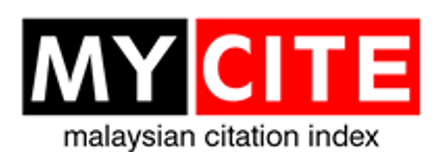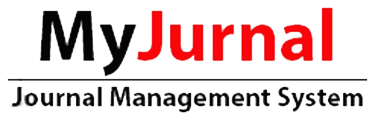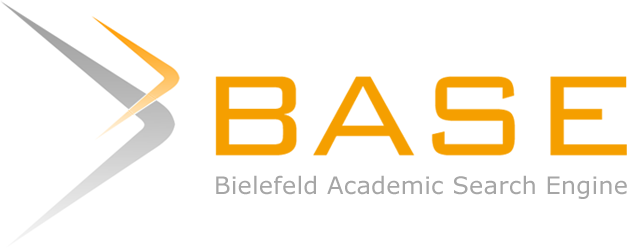About the Journal
Labuan e-Journal of Muamalat and Society (LJMS) is the online refereed journal [ISSN: 1985-482X; eISSN: 2672-7390] which was introduced on January 1, 2007, by the founder, Hanudin Amin currently a Professor at the Labuan Faculty of International Finance, Universiti Malaysia Sabah, Labuan International Campus. LJMS is a scholarly journal published twice a year (May and October), beginning Volume 17 issues 1 and 2 (2023) and onwards. LJMS is aimed at publishing high-quality articles to meet the needs of a wide but sophisticated audience and attract international readers. All articles in this journal have undergone rigorous peer review, based on initial editor screening and anonymized refereeing by anonymous referees to ensure that academic integrity is maintained.
Scope of Research & Topics
LJMS welcomes studies which focus on topical issues and are backed by relevant theoretical perspectives. These provide a key platform through which to advance both theory and practice. LJMS features interdisciplinary articles covering various disciplines that include Islamic banking, international business, accounting, investment, issues in society, economics in the Quran and Sunnah, technologies for financial services and Islamic social finance, inter alia.
Ethics Statement of Editor-in-Chief and Editorial Team, Editorial Board Members, Authors & Reviewers
PUBLICATION ETHICS
This is a statement for ethics for Labuan e-Journal of Muamalat and Society [LJMS] published by Labuan Faculty of International Finance, Universiti Malaysia Sabah. This statement was adapted from the principles of the Committee on Publication Ethics (COPE) and covers the code of ethics for the Editor-in-Chief and Editorial team, Editorial Board Members, Reviewers and Authors.
Duties of Editor-in-Chief and Editorial Team Members:
- Evaluate manuscripts fairly and solely on their intellectual merit;
- Ensure confidentiality of manuscripts and do not disclose any information regarding manuscripts to anyone other than the people involved in the publishing process;
- Have the responsibility to decide when and which articles are to be published;
- Actively seek the views of board members, reviewers, and authors on how to improve or increase the image and visibility of the journal;
- Give clear instructions to potential contributors on the submission process and what is expected of the authors; and
- Ensure appropriate reviewers are selected or identified for the reviewing process.
Duties of Editorial Board Members:
- Actively contribute to the development and the greater good of the journal;
- Act as ambassadors for the journal;
- Continuously support and promote the journal; and
- Review any work assigned to them.
Duties of Reviewers:
- Must disclose any competing interests before agreeing to review a submission;
- Have right to review any submission due to a conflict of interest or inadequate knowledge;
- Review all submissions objectively, fairly, and professionally;
- Reveal any ethical misconduct encountered while reviewing to the Editor-in-Chief for further action;
- Should ensure the originality of a submission and be alert to any plagiarism and redundant publication;
- Must not discuss the content of the submission without permission; and
- Adhere to the time allocated for the review process. Requests for an extension to review the submission are at the discretion of the Editor-in-Chief.
Duties of Authors:
- Have the responsibility of ensuring that new and original work is submitted;
- Must not produce work that has been previously published in other journals;
- Must not submit any articles that are being reviewed or considered by the journal to other journals simultaneously;
- Are only allowed to publish their work elsewhere after receiving a formal rejection from the journal if their request to withdraw their work is officially accepted by the journal;
- Must inform the Editor-in-Chief or the publisher of any inaccuracy of data in their published work so that correction or retraction of the article can be done; and
- Should make significant contributions and be held accountable for any shortcomings in their work.
PEER REVIEW PROCESS
The articles submitted to the LJMS will first be evaluated by the Editor-in-Chief regarding their merits. The article will be evaluated based on its suitability for LJMS, contribution to the discipline, cogency of analysis, conceptual breadth, clarity of presentation, and technical adequateness. The articles deemed appropriate will be sent to the peer review process through double anonymous peer review involving at least two (2) reviewers. To ensure that articles are evaluated solely on their merit, the author(s)’ identity is concealed from reviewers during the review process. All authors are expected to revise their articles promptly after receiving reports from the reviewers. No article will be rejected without taking into consideration its values, suitability, and readiness for the Journal, which are based on the reviewers' constructive comments. The final decision is made by the Editor-in-Chief. The decision is broken down into four outcomes: [1] Accept, [2] Accept with minor revision, [3] Accept with major revision, [4] Reject. Responsibility for opinions and accuracy of information in articles published rests solely with the respective authors.
PUBLICATION FEES
LJMS is open access journal which does not charge any subscription fees, pay-per-view, article-processing charge (APC), submission charges, or another fee. All processes of article publication are free of charge.
PUBLICATION FREQUENCY
LJMS publishes twice a year (May and October). Each issue will have a minimum of ten (10) articles.
MALPRACTICE STATEMENTS
Originality and Plagiarism
Author should submit only original work that is not plagiarized, and has not been published or being considered elsewhere. TURNITIN [https://www.turnitin.com/login_page.asp] may be used by the editorial office to check for similarities between submitted manuscripts with existing literature. The inclusion of fraudulent or knowingly inaccurate statements is unacceptable. Work and/or words from other publications must be appropriately cited or quoted.
Reporting Standards
The author should state their results clearly, honestly, and without fabrication, falsification or inappropriate data manipulation. The methods used in the work should be clearly and unambiguously described so that the findings can be repeated and confirmed by other researchers.
Data Access and Retention
Authors may be asked to provide the raw data in connection with a paper for editorial review, and should in any event be prepared to retain such data or a reasonable time after publication.
Disclosure and Conflicts of Interest
A statement on conflict of interest must be included in the manuscript if authors receive any support that might be construed to influence the results or interpretation of their manuscript. All sources of financial support for the project should be disclosed.
Authorship and Collaboration
The names of authors listed in a paper should be limited to those who have made a significant contribution to the report. Only those who made significant contributions should be listed as co-authors. Others who have participated in certain substantive aspects of the work must be acknowledged or listed as contributors. The corresponding author must ensure that only eligible co-authors are included in the submitted paper.
Redundancy
Authors should not publish manuscripts describing essentially the same research output in more than one journal or primary publication. A similar manuscript should not be submitted to more than one journal concurrently as this constitutes unethical publishing behaviour and is unacceptable.
Errors in Published Works
When an author discovers a significant error or inaccuracy in his/her own published work, the author should promptly notify the journal editor or publisher and cooperate with the editor to retract or correct the manuscript.
Open Access Policy
This journal provides immediate open access to its content on the principle that making research freely available to the public supports a greater global exchange of knowledge.
Copyright Policy
All articles published are licensed under a Creative Commons Attribution-ShareAlike 4.0 International License.






